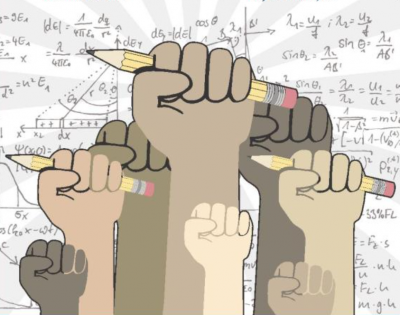Mathematical and Computational Approaches to Social Justice

Social justice refers to fair relations between individuals and society, including issues such as equity, diversity, and inclusion. While the study of social justice historically has been rooted in the social sciences and humanities, mathematics and computation provide complementary and powerful approaches. Tools from dynamical systems, network science, applied topology, stochastic processes, data mining, and more have been applied to issues ranging from voting to hate speech.
ICERM, the Institute for Computational and Experimental Research in Mathematics, held a conference this week titled "Mathematical and Computational Approaches to Social Justice." The goal was to promote new areas of research on quantitative approaches to social justice. It brought together mathematical and computational scientists who are equipped with tools and methodologies that could be applied to social justice, as well as those who already have expertise with social justice work. The aim was to showcase research at the intersection of mathematics, computing, and social justice, as well as build community among scientists interested in quantitative social justice research.
Duke Math professor Veronica Ciocanel's talk was "Analyzing Racial Equity and Bias of Federal Judges through Inferred Sentencing Records." Professor Jonathan Mattingly's talk was "Fairness in Redistricting."
More information on the conference can be found here.




